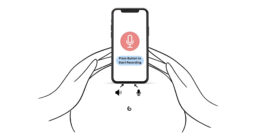American adults demonstrate increasing wariness about artificial intelligence, with 50% reporting greater concern than excitement about AI’s expanding role in daily life, according to new research from the Pew Research Center.
The figure represents a significant rise from 37% recorded in 2021, while only 10% express more excitement than concern about AI adoption. The remaining 38% report equal levels of excitement and apprehension.
A survey of 5,023 US adults conducted between 9th and 15th June reveals widespread pessimism about AI’s effect on human capabilities. More than half of respondents (53%) believe AI will diminish people’s creative thinking abilities, compared with just 16% expecting improvement.
Similarly, Americans anticipate negative impacts on interpersonal connections, with 50% predicting AI will harm people’s capacity to form meaningful relationships, while only 5% foresee benefits in this area.
The research highlights a significant disconnect between AI awareness and confidence in identifying AI-generated content. While 95% of adults report familiarity with AI technology, 53% lack confidence in their ability to distinguish between AI and human-created materials.
Despite these concerns, 76% consider it extremely or very important to identify whether pictures, videos or text originated from AI or human sources.
Public support for AI applications varies considerably across different sectors. Weather forecasting receives the strongest endorsement, with 74% supporting at least some AI involvement. Financial crime detection (70%) and government benefits fraud investigation (70%) also gain majority approval.
Healthcare applications show mixed reception, with 66% backing AI’s role in medicine development but only 46% supporting AI-powered mental health assistance.
Personal domains face significant resistance. Two-thirds oppose AI involvement in romantic matchmaking, while 73% reject AI guidance on religious matters.
“The most common concern mentioned was about AI weakening human skills and connections,” researchers noted when analysing respondents’ explanations for rating AI risks as high.
Generational differences emerge clearly in the data. Adults under 30 demonstrate higher AI awareness, with 62% reporting substantial knowledge compared with 32% among those aged 65 and older. However, younger adults express greater pessimism about AI’s impact on creativity (61%) and relationships (58%) than their older counterparts.
The survey reveals Americans desire greater control over AI usage in their lives, with about 60% wanting increased oversight compared with 17% satisfied with current control levels.











